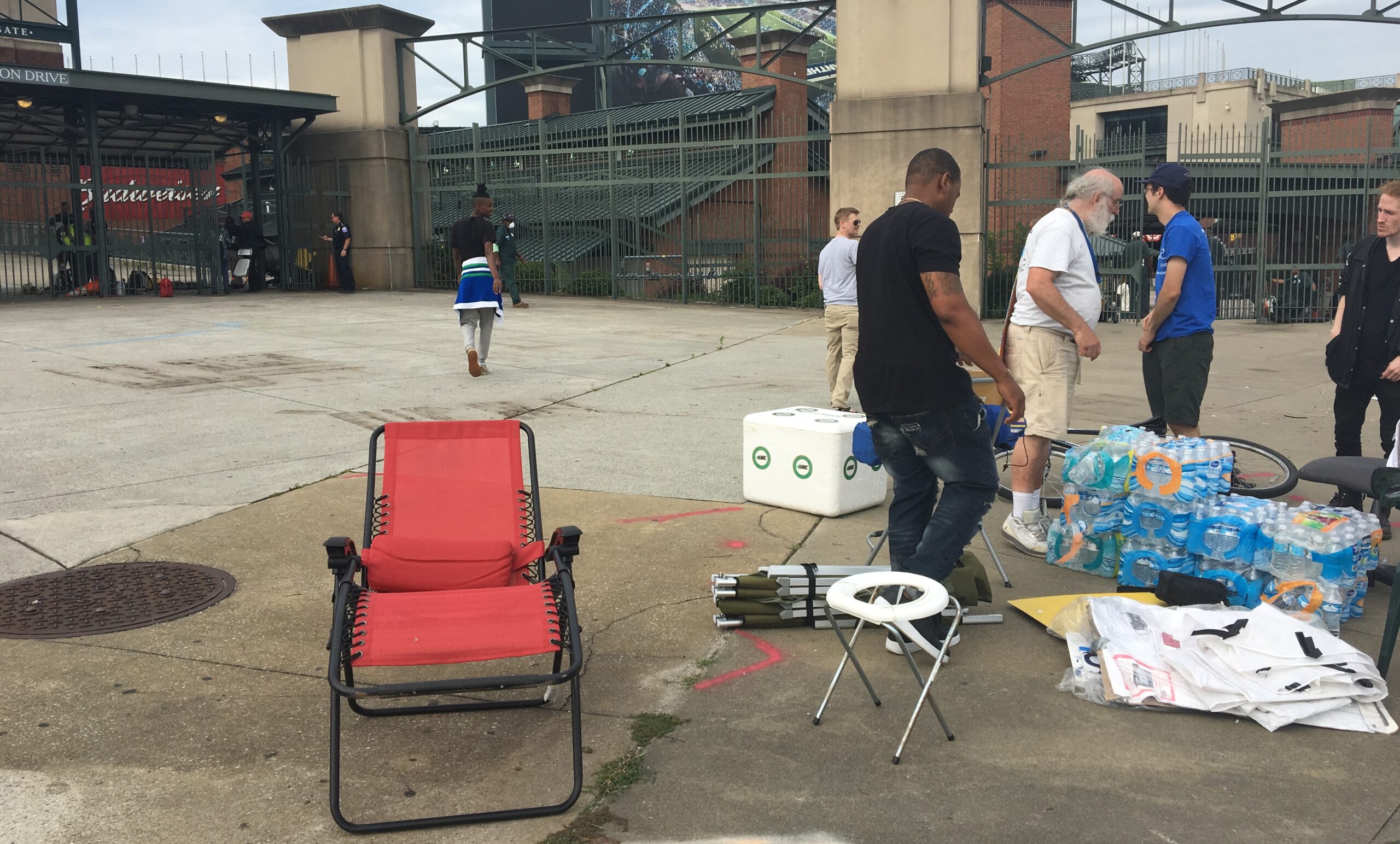Georgia State University police have taken down the activist tent city that’s amassed outside Turner Field for the last two months. The school says it’s been getting complaints.

Lisa Hagen / WABE
Georgia State University police have taken down the activist tent city that’s amassed outside Turner Field for the last two months. The school says it’s been getting complaints.
GSU police showed up before 7 a.m. Friday to clear the stadium sidewalk. More than 20 tents have been hosting a rotating cast of activists, GSU students and community members there.
“They told us ‘We’re taking the camp down. You need to get out of here.’ They started checking IDs, pulled their knives out and ripping stuff down and deconstructing the camp,” said Reagan Cooper, one of a handful of activists at the tents when police came.
The group said it’s pushing for more community input in the Turner Field redevelopment. It wants GSU and Carter Development to sign a document guaranteeing affordable housing and non-displacement of current residents.
“You’ve just been in meetings with us telling us that you want to be good partners and good neighbors, but this doesn’t display that,” said longtime Peoplestown resident Sharise Brown, referring to GSU leadership. “We feel disrespected and we feel like our voices don’t matter.”
Many of the activists noted they’d been given no warning of an impending sweep, despite being in ongoing discussions with the school.
“[The removal] really was guided by complaints by the neighborhood as well as the allocation of resources. At some point, you have to make the decision to move on and that’s what we did this morning,” said Bharath Parthasarathy, an attorney with GSU.
Twitter and social media were filled with shock and backlash about the police action Friday morning. Meanwhile, the school itself received a number of supportive and thankful messages from nearby residents.
There has been ongoing tension between the coalition of activists who’ve rallied at the tent city and a number of neighborhood association groups who’ve been more willing partners with GSU and developers.
“It’s really difficult to have cohesive long-term success for everyone if you don’t have a cohesive voice from the neighborhoods,” said Parthasarathy. “We have chosen, which we think is correct, democratically elected neighborhood associations—which would be similar to any neighborhood in the city of Atlanta—as the representative voice of their neighborhoods.”
In April, GSU announced a plan for community programs it had developed with those neighborhood associations.
The tent activists said they’re not satisfied with the plan and vow to continue their fight for a Community Benefits Agreement. They declined to say whether the tents would rise again.
9(MDAxODM0MDY4MDEyMTY4NDA3MzI3YjkzMw004))